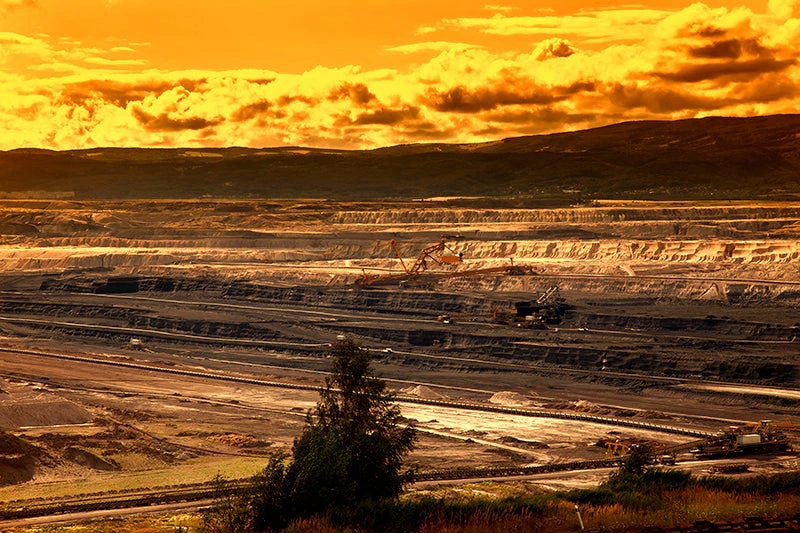
The global commodities boom of the past decade has had an undeniable impact on Latin America and the Caribbean. Rich in minerals, forest and water, the region’s golden decade was boosted significantly by income from the extractives industry, especially oil, iron and copper.
But now that this global super-cycle has run its course and demand is dropping, it’s time to take stock and ask what this means for governance – both within the sector and regionally. Specifically, how can we continue to advance stronger governance, transparency and social and environmental sustainability within the extractive industry given the new macroeconomic picture?
That was the question we set out to debate at the Natural Resource Governance in Latin America and the Caribbean: Social and Environmental Policies for Inclusive Growth conference, held jointly with the Wilson Center in Washington DC recently.
And as Jorge Familiar, World Bank Vice President for the region, reminded us when opening the event; Latin America cannot miss this opportunity to optimize its use of natural resources in a period of constrained economic outlook.
The takeaways from the resulting discussions are of great relevance to the Bank’s work in supporting the region to achieve just that. In fact, they touch on many things we do beyond the extractives sector itself.
- The region’s bread and butter- On the macro picture: yes, the super-cycle has finished, but – as Augusto de la Torre, World Bank Chief Economist for Latin America and the Caribbean, told us – commodities will remain the bread and butter of the region. So, it’s even more important to better integrate regional economies into global value chains in order to maximize benefits from the region’s natural resource wealth. While a number of countries are under socio-economic strain because of the downturn (even if different countries deal with it differently), the good news is that lower commodity prices may offer an opportunity for increased transparency and to share benefits more equitably.
- Transparency beyond revenues - In the extractives sector, transparency and accountability mean much more than only how to deal with revenues. This discussion needs to encompass rule of law, transparency and accountability, and the challenges of capacity: to generate and monitor data and to actually manage natural resources and the income derived from them. Daniel Kaufmann of the Natural Resource Governance Institute highlighted the risk of “zombie accountability,” when there is a degree of transparency, but governments do not act on it and cannot be held accountable. Similarly, Tony Bebbington of Clark University reminded us that transparency can be revoked, so we need to demand it and make it happen.
- Dialogue, a recurring theme- Throughout the conference, one word came up repeatedly, especially regarding environmental and social sustainability: “dialogue”. In Chile the Alianza Valor Minero brings together a diverse set of key players in a public-private partnership --government, industry, labor unions, indigenous groups, and the environmental movement. The aim: to bring all stakeholders to the table for a transparent dialogue process. Adelso Reyes of Abya Yala, an umbrella organization of regional indigenous groups, spoke about the as yet unsuccessful struggle for benefit-sharing with a nickel mining company in Guatemala. As Reyes said, reinforcing the dialogue theme, “companies should learn to speak with us in a socially acceptable manner.” On the positive side, government and private sector actors shared the progress made on managing the effects of gold mining in Colombia’s Magdalena Medio region, and dealing with the different types of mining.
- Market failure - It is clear that we have a case of market failure. Markets need laws, regulations and institutions to function, and it is obvious that countries and companies still have a way to go to internalize the costs from extractive operations. The various initiatives we heard about try to do that, but successful examples are still few and far between.
- Changing incentives - You might think that with the cost of mining investments going into the billions, the additional cost of sharing benefits with communities and avoiding detrimental environmental impacts would be incremental and that, therefore, companies would have an incentive to seek solutions. However, according to a recent paper by Bebbington et al, “mining and hydrocarbon companies fail to factor in the full scale of the costs of conflict.” They quote the case of a large mining project with an investment of between US$3 and US$5 billion that reportedly incurred losses of some US$20 million per week in delayed production due to conflicts.
It was striking to me how much the World Bank Group can support our client countries to make extractives a positive development factor, combating poverty and leading to true shared prosperity.
The Bank’s leadership and national government engagement in the context of the global Extractive Industries Transparency Initiative (EITI) are one piece of the puzzle in helping advance transparent and inclusive dialogue and accountable governance structures.
Given Latin America’s reliance on natural resources, this is a topic we need to keep working on, and take advantage of the window of opportunity presented by the end of the commodities super-cycle.


Join the Conversation